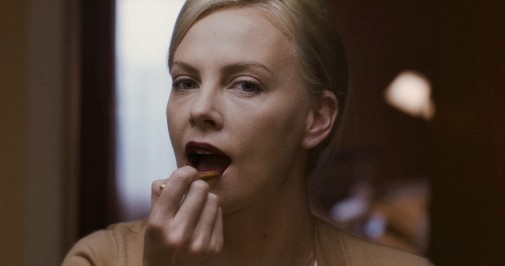
Ten years ago, Young Adult arrived in theaters, signaling the second collaboration between director Jason Reitman and screenwriter Diablo Cody. It was also the creative duo's first work alongside Oscar-winning actress Charlize Theron. Polarizing to this day, the picture divided critics and audiences alike, even as it gained champions heading into awards season. Cody's work and Patton Oswald's supporting turn won many admirers, but Theron's acidic star turn proved to be the movie's biggest Oscar bid. While already blessed with much critical recognition for her dramatic efforts, the actress wasn't known for comedy. Her casting was, thus, a bit of an against-type choice and her success a surprise.
In retrospect, it sounds silly that there were any doubters. A decade after its premiere, Young Adult shines bright as Charlize Theron's greatest achievement…
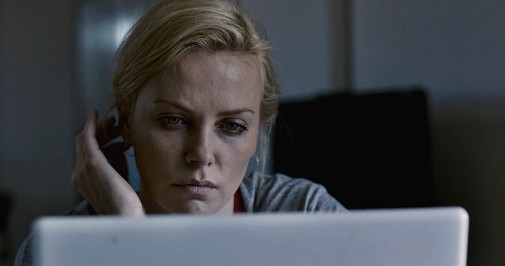
Mavis Gary is 37, she's divorced, the ghostwriter for a popular series of young adult novels. She's also a disaster on legs, a total hot mess express with a drinking problem, writer's block, and a deadline that's staring her in the face like headlights staring down a deer. She's a leech, ready to use an overheard conversation at the store to plump up her draft with some youthful jargon and thoughts of "textual chemistry." Theron's smile is predatory in such scenes, almost lascivious in its greasy self-contentment. And yet, Mavis is a total procrastinator, too, incapable of writing more than a paragraph without something else distracting her away from the job.
Namely, a baby is smiling at her from the computer. Buddy Slade, Mavis' high school sweetheart, has sent out an e-mail bearing news of his daughter's birth, precipitating an avalanche of memories and regret. Not enough second-hand inspiration is enough to keep her mind from straying to that baby picture, that damned baby picture. The way she looks at it is fascinating too. In a flash, she's out the door, heading south, to her detested hometown with a plan to break a family apart and get Buddy back. What ensues is a conventional narrative twisted out of shape by a sarcastic protagonist full of unresolved resentments and untreated mental health problems.
Yet, through it all, Theron's best asset is how she can perform an essential disconnect between her eyes and the rest of the face. As Mavis, the actress has the the dictionary definition of resting bitch face, but she still finds variation through contrast. Even while putting on a mask of disdain through a frowned brow and upturned mouth, her wandering look tells a different story. Gazing at the small-town banality, her contempt is cut through by an undercurrent of fear. Her eyes are scared, betraying to the camera, another facet of Mavis that the script is still unwilling to expose fully.
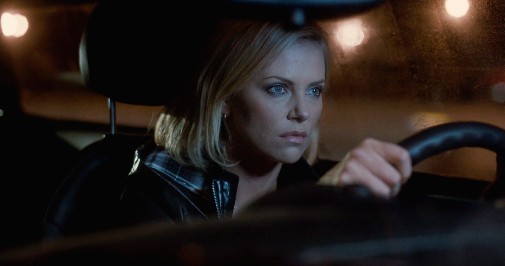
Is it fear of being back or fear of belonging to this banality? Mavis is nearing forty, but inside, she's still a small-town teen stuck in perpetual arrested development, a psychotic prom queen bitch that never grew up. She just grew old. Theron further plays her as a tic-ridden bitch on wheels that thinks herself way more intelligent than she is. It'd be easy to portray Mavis' manipulations as Machiavellian sociopathy, and many performers would have fallen into the trap. This actress doesn't do that, though, especially when first talking to Buddy through the phone. In such scenes, she's all fluttery trepidation, body folding on itself, overwhelmed and incapable of fine machination.
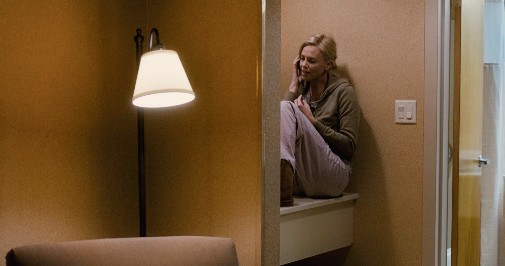
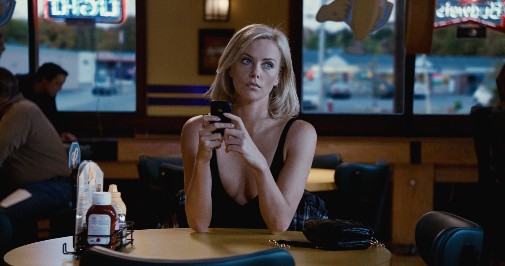
Only vaguely sober, her in-person meetings with Buddy are even more chaotic. Insincerity personified, Theron performs Mavis's seduction attempts as a fool deluded into thinking she's the star of a rom-com. She plays it straight while never contradicting that Young Adult is a pitch-black comedy, more interested in character dissection than romance. At his home, it's even more cringe-inducing, as the madwoman metaphorically pisses all over him, marking her territory to a wife that can see right through the charade. Indeed, one thing that's increasingly clear as the plot unravels is that Mavis is the only one who believes in the lies.
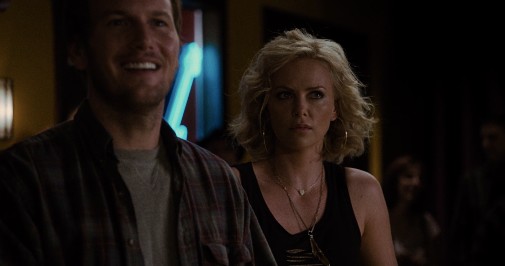
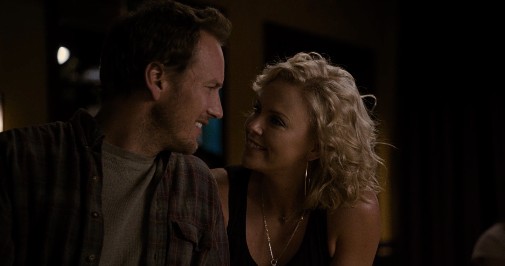
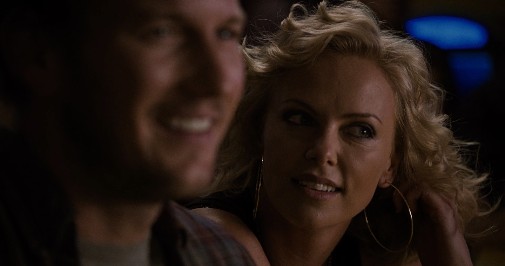
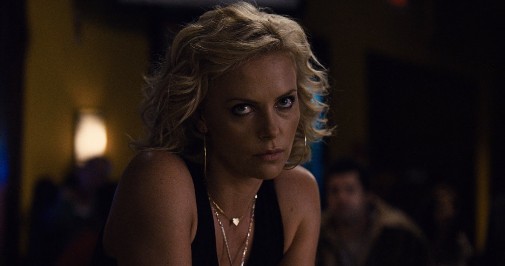
Her charade isn't fooling anyone else. Sadly, she's trapped inside her head full of fantasies, incapable of looking beyond her neurosis. Consider a concert night out, where all other actors contemplate Mavis with caution, disgust, an edge of schadenfreude. Reading Theron's performance, it's safe to say Mavis is none the wiser. Listening to what she perceives as her song, played by her ex-boyfriend's wife's band, Mavis's expression is a marvelous roller-coaster. She's surprised and hurt, quickly covering her emotional bruises with a flirtatious façade, before Buddy looks away, and her shock can visibly percolate into hatred. If looks could kill, Mavis Gary would be wanted for murder.
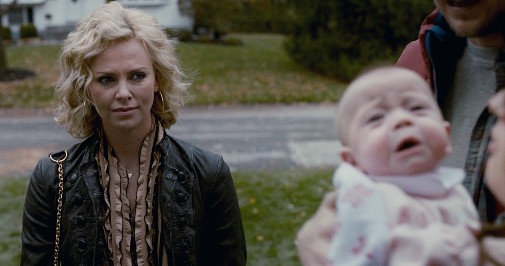
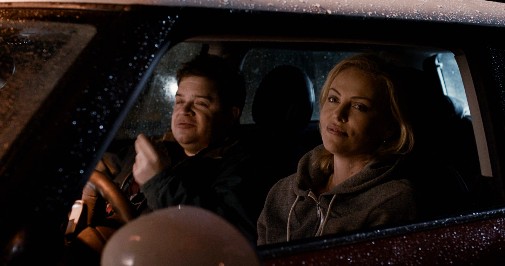
A more successful relationship is the unlikely friendship between Mavis and Matt, a former schoolmate targeted by violent bullies for his perceived queerness. It could easily ring false, a mere script construct forever unable to rise above its mechanical qualities. However, both Theron and Patton Oswald have great chemistry, finding camaraderie in the characters' shared cynicism. As they toast over their common hatreds, sneers melt into smiles, a blossoming flower of mutual understanding that each actor commits to without sacrificing their roles' sharp edges. They're also comedy gold together.
Still, nothing's better than when she gets to explode on camera. After rejection and red spilled over white silk, Mavis breaks down, and Theron gets a moment to show off. Everything that's been left unsaid, sublimated in manipulations and lies, comes out. What's worse, she's not met with an equally fiery response. Instead, the people she spent the past few days twisting around her little finger reveal they pity this wreck of a woman. And Mavis may be able to handle hatred, but pity is too much to bear. Theron illustrates the incredulity, the feeling of one who's so surprised they don't know how to react or even decipher the turmoil in their head.
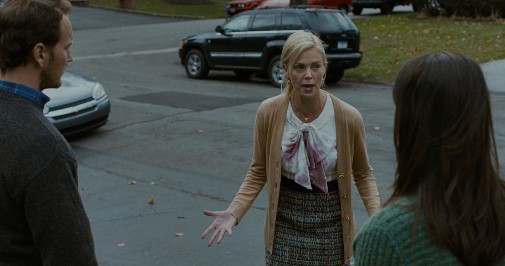
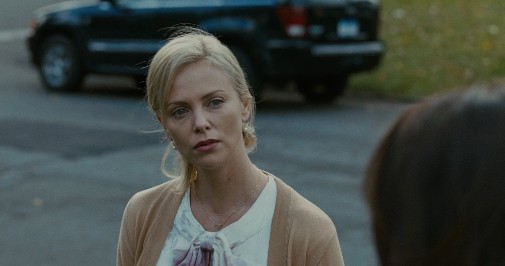
"I'm crazy, and nobody loves me." – a trite line in the mouth of any other actor turns into a searing epiphany when played by Theron at the top of her game. Not that the epiphany's effect lasts for long. Talking after sex, her words reveal what Mavis may be unprepared to face – she's not in love with Buddy. Instead, she is in love with her past self, and he is part of that former identity. Missing who she was, the writer seeks a symbol that makes her feel like nothing has changed. Stuck, incapable of being happy, Mavis is on the precipice of self-reflection, actualization. And then, sycophantic support of her worldview boosts the woman's ego, and it's all ruined. She's back to before, finishing the movie in a note of anti-catharsis.
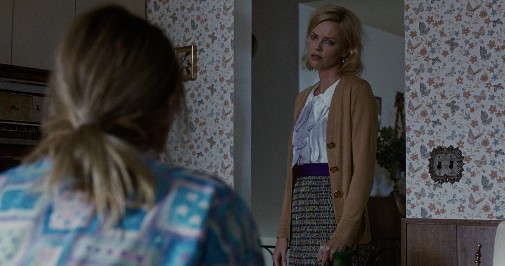
Despite their brilliance, neither Theron's performance nor Young Adult was showered with unanimous praise come awards season. That didn't stop the actress from getting some precursor love, like Critics Choice and Golden Globe nominations, regional critics honors, and a Satellite nomination. Even so, when it came time for the Academy to consolidate their chosen five, 2003's Best Actress champion was ignored. Instead, AMPAS nominated Glenn Close in Albert Nobbs, Viola Davis in The Help, Rooney Mara in The Girl with the Dragon Tattoo, Meryl Streep in The Iron Lady, and Michelle Williams in My Week with Marilyn. Streep won her third statuette, while Theron would have to wait until Bombshell to receive her third nomination.
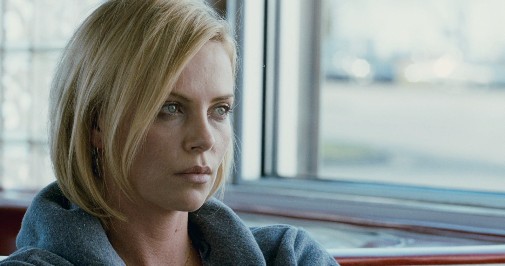
Young Adult is streaming on fuboTV, Showtime, DirecTV, and Spectrum On Demand. You can also rent the movie on various services.